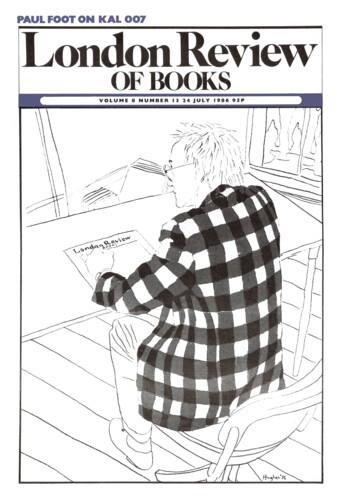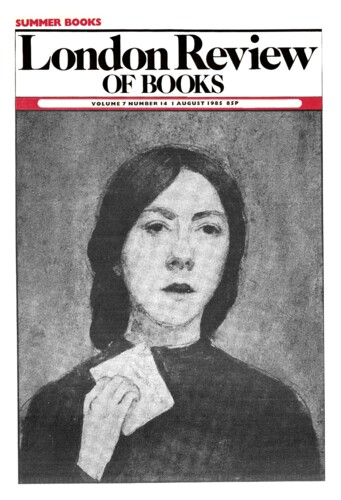Michi and Meiji
Nobuko Albery, 24 July 1986
I once received this stern admonition from an English editor: ‘If you intend to be a Japanese novelist whom we are translating into English, okay – I accept your manuscript as it is and will get on with publication. But if you wish to be considered an English writer, then you must rewrite. Don’t narrate to us, show us. And-then-and-then is not the way we want a story told.’ Ah, but I had been fed on the stodge of and-then-and-then all my life! In the course of the gruelling process of rewriting to show rather than to tell, I soon realised that we Japanese have a congenital difficulty in understanding the Western sense of ‘a plot’. To us a plot means suji, nothing more than a line, a sequential flow, which Professor Ueda, in a chapter in Principles of Classical Japanese Literature, explains is an antithesis of ‘plot’, in which the law of causality unites all the parts into a whole. This characteristically Japanese principle may seem more incidental, associational and irrational than its Western counterpart, so it is not surprising that Westerners often complain of meandering formlessness in Japanese novels, music, dance and theatre: but the Japanese in return find the implacable advance of a logical, causal plot suffocating. It seems to leave little room for the appreciation of what to them is the indispensable joy of any artistic expression – ma, literally ‘pause’ or ‘breath’. A Western play that drives helter-skelter towards a causal dénouement within a matter of two hours strikes them as jejune, they who adore sitting through a five or six-hour-long performance of kabuki, during which they pay blithely little attention to plot, logic or plausibility but delight in its incorporation of disconnected scenes from lengthy plays – to the point of knowing every line and gesture by heart.’


